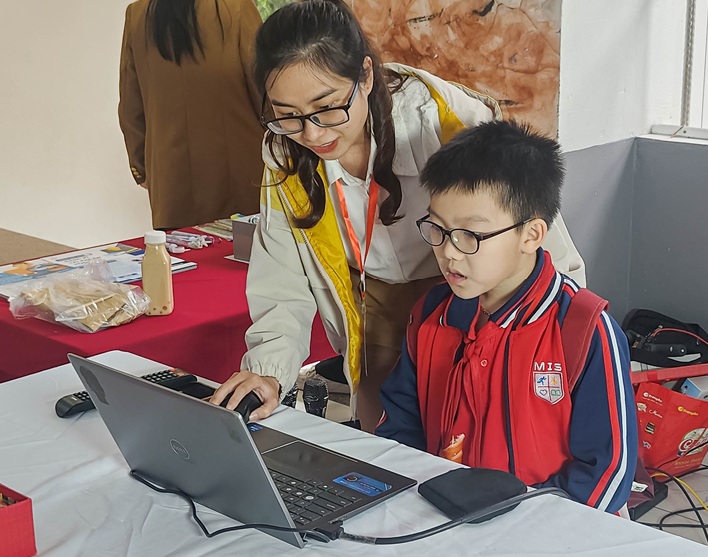The Importance of Teaching Positive Education Skills
Positive Psychology in Schools

In today's rapidly changing educational landscape, the integration of positive education skills such as using strengths, managing emotions, and practicing mindfulness is becoming increasingly essential. These skills not only enhance academic performance but also contribute significantly to the overall well-being and mental health of students.
Using Strengths
Identifying and leveraging individual strengths can transform the educational experience. According to positive psychology research, when students focus on their strengths, they exhibit higher levels of engagement, motivation, and achievement. Clifton and Harter (2003) found that students who recognize their strengths are more likely to be confident, resilient, and perform better academically. By focusing on what students do well, educators can create a more personalized and empowering learning environment.
Practical Application:
- Strengths-Based Learning: Teachers can incorporate strengths-based assessments and activities in their curriculum, helping students identify and develop their unique abilities.
- Positive Feedback: Providing positive reinforcement and feedback that highlights students' strengths encourages a growth mindset and fosters a sense of accomplishment.
Managing Emotions
Emotional regulation is a critical skill that impacts every aspect of a student's life, from academic performance to social interactions. Emotionally intelligent students can better navigate the challenges of school life, reducing stress and improving mental health. Research by Brackett and Rivers (2014) indicates that students who are taught to manage their emotions exhibit fewer behavioral problems, higher grades, and better relationships with peers and teachers.
Practical Application:
- Social-Emotional Learning (SEL) Programs: Implementing SEL programs in schools can teach students techniques to identify, understand, and manage their emotions effectively.
- Mindful Breathing and Relaxation Exercises: Incorporating simple practices such as mindful breathing and relaxation exercises into the daily routine can help students develop better emotional control and resilience.
Practicing Mindfulness
Mindfulness, the practice of being present and fully engaged in the current moment, has been shown to have numerous benefits for students. Research by Meiklejohn et al. (2012) highlights that mindfulness practices can reduce anxiety, enhance attention, and improve cognitive performance. By fostering mindfulness, educators can help students develop a greater awareness of their thoughts and feelings, leading to better self-regulation and academic success.
Practical Application:
- Mindfulness Meditation: Introducing mindfulness meditation sessions in the classroom can help students cultivate a calm and focused mind.
- Mindful Activities: Activities such as mindful eating, mindful walking, and guided imagery can be incorporated into lessons to promote a state of mindfulness among students.
Conclusion
Integrating positive education skills such as using strengths, managing emotions, and practicing mindfulness into the curriculum is crucial for developing well-rounded students who are not only academically proficient but also emotionally intelligent and resilient. These skills equip students with the tools they need to thrive in both their personal and academic lives, ultimately leading to a more positive and productive educational experience.
References:
- Brackett, M. A., & Rivers, S. E. (2014). Transforming Students’ Lives with Social and Emotional Learning. International Handbook of Emotions in Education.
- Clifton, D. O., & Harter, J. K. (2003). Investing in Strengths. Positive Organizational Scholarship.
- Meiklejohn, J., Phillips, C., Freedman, M. L., et al. (2012). Integrating Mindfulness Training into K-12 Education: Fostering the Resilience of Teachers and Students. Mindfulness.
Super Admin

Ademy Vietnam at MIS Innovation Day: Introducing Effective Self-Learning Solutions
On March 29, 2025, Ademy Vietnam participated in the MIS Innovation Day – an event focused on science, technology, and culture, attracting thousands of students and parents from Hanoi and surrounding provinces.

Psychological Methods for Improving Students' Memorization of Lesson Content
Improving Students' Memorization

The Powerful Impact of Video on Teaching and Learning: Insights from Professional Research
Impact of Video on Teaching and Learning

Enhancing Student Memory: Effective Strategies and Techniques
Improving students' memory

A Comprehensive Guide to Flipped-Classroom Lesson Planning for Secondary Teachers
Flipped-classroom lesson planning guide